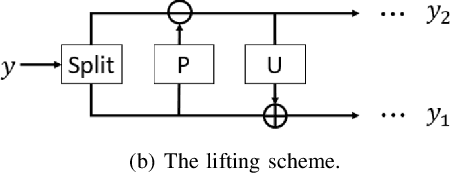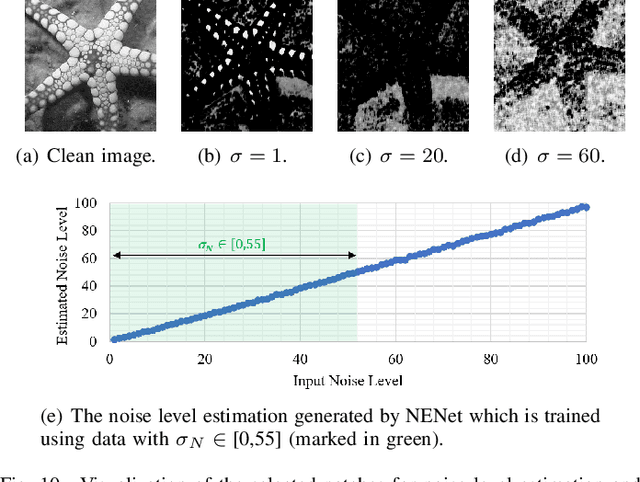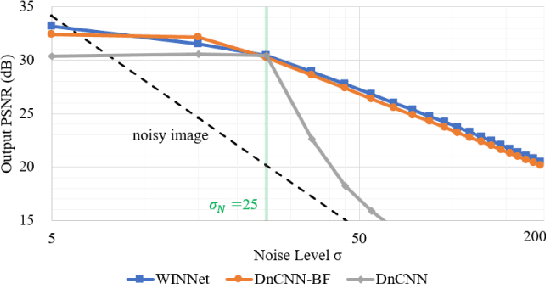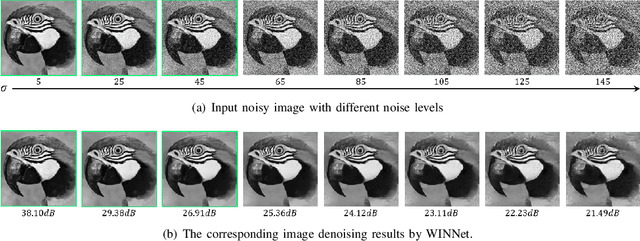WINNet: Wavelet-inspired Invertible Network for Image Denoising
Paper and Code
Sep 14, 2021



Image denoising aims to restore a clean image from an observed noisy image. The model-based image denoising approaches can achieve good generalization ability over different noise levels and are with high interpretability. Learning-based approaches are able to achieve better results, but usually with weaker generalization ability and interpretability. In this paper, we propose a wavelet-inspired invertible network (WINNet) to combine the merits of the wavelet-based approaches and learningbased approaches. The proposed WINNet consists of K-scale of lifting inspired invertible neural networks (LINNs) and sparsity-driven denoising networks together with a noise estimation network. The network architecture of LINNs is inspired by the lifting scheme in wavelets. LINNs are used to learn a non-linear redundant transform with perfect reconstruction property to facilitate noise removal. The denoising network implements a sparse coding process for denoising. The noise estimation network estimates the noise level from the input image which will be used to adaptively adjust the soft-thresholds in LINNs. The forward transform of LINNs produce a redundant multi-scale representation for denoising. The denoised image is reconstructed using the inverse transform of LINNs with the denoised detail channels and the original coarse channel. The simulation results show that the proposed WINNet method is highly interpretable and has strong generalization ability to unseen noise levels. It also achieves competitive results in the non-blind/blind image denoising and in image deblurring.
 Add to Chrome
Add to Chrome Add to Firefox
Add to Firefox Add to Edge
Add to Edge